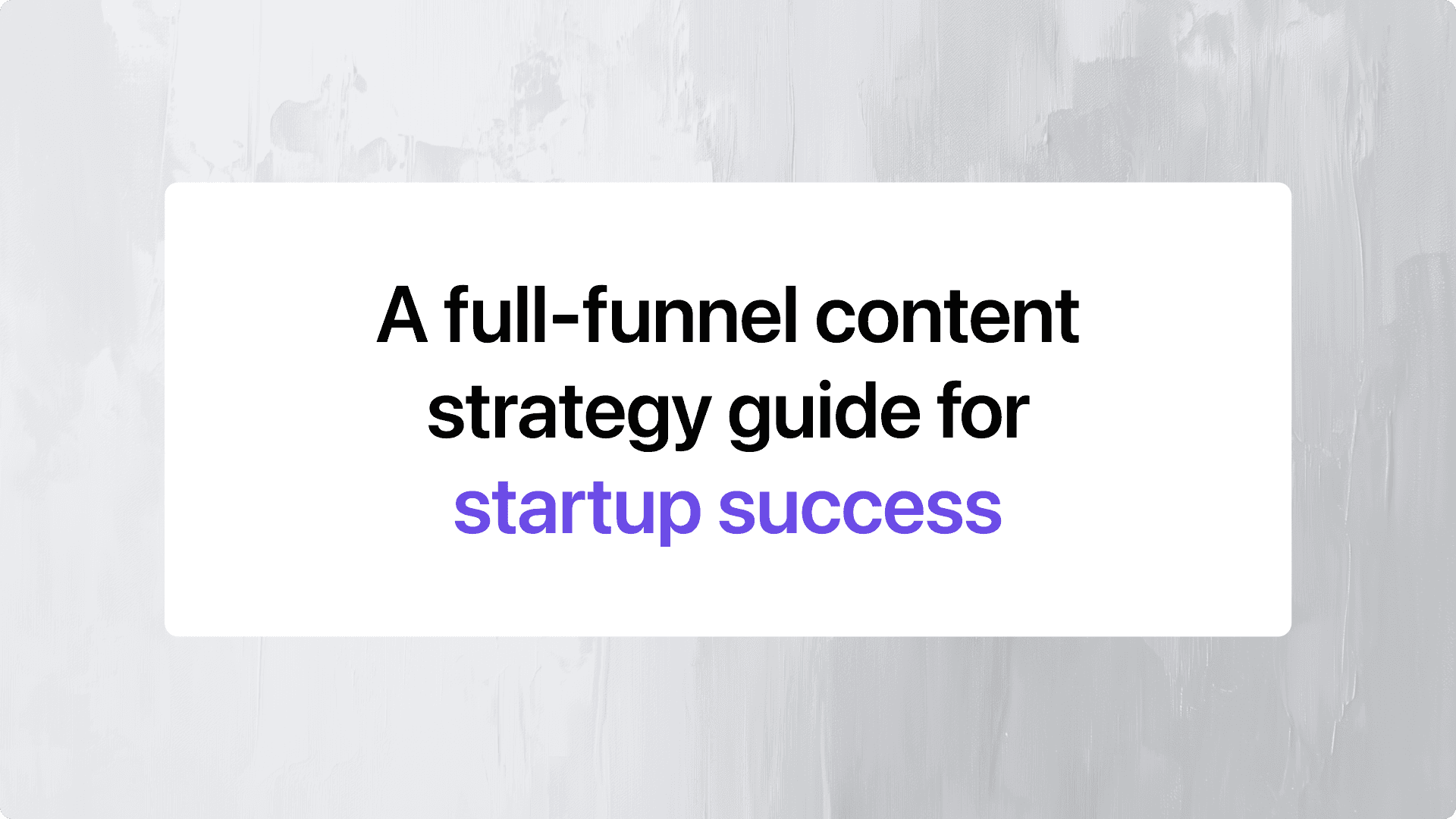Thursday 2 November 2023
·

Ben Hacking
Co-founder & CEO
Image credit:
Arcane
tl;dr
The CRM evolution and how to park in Brussels 🛴
Ben Hacking: Thanks for joining us Jacqueline! CRM has been a theme of your career. What were the early days of CRM like?
Jacqueline Boina: When I began working with CRM tools, they were basic. I actually provided live user feedback to CRM developers, to help them improve their product. Once CRM tools began introducing workflows, we saw an instant improvement in our relationships with consumers. CRM software enabled consistent outreach which increased trust, perceived brand value, and conversions. At the same time, these workflows augmented our sales team who was then able to focus on bigger clients and higher value deals.
Ben Hacking: Now a decade later, how have CRM tools evolved?
Jacqueline Boina: CRMs offer many more insights today. For example, at VOI, our CRM has intelligent audience segmentation, so rather than send every user a campaign, we’re able to focus on certain audiences, educating some while inviting or making offers to others. Modern CRM software also provide a lot more reporting functionality. We can now pull reports and dive deeper into analysis to inform and improve our campaigns. For instance, we’re seeing in-app messages work better than PUSH for our active users, so we can prioritise these.
Ben Hacking: You mentioned user education. How do you educate users through marketing channels?
Jacqueline Boina: At Voi, we have global education campaigns and market-specific campaigns. For example, a winter tips campaign may be global, whilst the Brussels market is also receiving a campaign to improve parking. This way we can tailor messaging to specific markets with the education we’re aiming to provide.
Ben Hacking: Can we dive deeper into what a parking campaign in Brussels might look like?
Jacqueline Boina: At the market level, we work with the market managers to identify problems on a city-level and educate users on them. In Brussels, The parking spaces recently became MPZs (Mandatory Parking Zone). It's always a difficult transition for our users, and we accompany this with a fixed banner in the application or an in-app message. We also offered rewards to users who park correctly.
Ben Hacking: Through those campaigns and your use of in-app rewards, you’re then able to modify rider behaviour in a way that benefits all parties: the rider, Voi, and the local community.
Jacqueline Boina: Yes. It’s a fourth arm of lifecycle marketing: education.
Aligning international interests
Ben Hacking: As an international brand, how is your marketing function structured?
Jacqueline Boina: Voi is in 12 countries in Europe, with over 100 cities. Depending on the size of a market, we have a Head of Marketing for the region and marketing managers, as well as associates. Overall management comes directly from our Marketing Director.
Ben Hacking: With over 100 cities, how does everyone stay organised and aligned?
Jacqueline Boina: We have a weekly meeting where we share each market’s goals and objectives and Voi HQ shares theirs. From there, progress and delivery is managed on a shared calendar. This company-wide visibility is super helpful, because we get insights from other markets on what works, what didn’t, and what they’re planning.
Ben Hacking: Can you share an example of that?
Jacqueline Boina: In Sweden, there was a safety event and push on our social media around enabling blind and visually impaired people. The idea was to put a blindfold on our user's eyes so that they could see the impact of a badly parked scooter. We realised this issue is present in Brussels and other markets too. We then worked with an organisation that supports blind and visually impaired people (Ligue Braille) to create a global education campaign, and used lessons from Sweden’s success.
Accelerating Productivity with AI 📈
Ben Hacking: Have you or your peers leveraged any AI tools at Voi?
Jacqueline Boina: Yes, I recently supported the user experience team to integrate Kindly, an AI Chatbot, to automate support with conversational experiences. The larger marketing team also uses Localize’s AI tool to accelerate translation productivity. We actually just used Localize’s new AI tool for our traffic school: Ride Safe Academy too, and it reduced our translation time so much.
Ben Hacking: Beyond time saving, what else are you finding valuable in AI tools?
Jacqueline Boina: The accuracy. Especially in translations AI tools seem to better understand context, and produce more accurate results.
Ben Hacking: What features are you looking for future AI tools to have?
Jacqueline Boina: Memorisation. I’d like to be able to train my own AI to remember my preferences and customisations, and have it produce results incredibly specific to me and our brand.
Ben Hacking: Have you been using chatGPT at all?
Jacqueline Boina: Yes, of course, It's like having another brain. I’ve used ChatGPT for everything from email copy to content creation, and campaign idea generation. It’s been a complete game changer, and I now have more time to focus on strategy. I’ve also used to challenge the quality of my ideas.
Keeping it agnostic 💡
Ben Hacking: As an omnichannel marketer, how do you stay organised and on top of every campaign?
Jacqueline Boina: Like the lift I get from AI, over the years I’ve added productivity tools to my marketing stack as well.
Ben Hacking: What does your toolstack look like for tracking, monitoring, and measuring?
Jacqueline Boina: That's a really great question. It’s challenging. With so many channels, it’s difficult for marketers to understand and measure success, especially return on investment. For offline campaigns with codes, we use Metabase. We created an SQL query for those campaigns, and track redemptions on a weekly basis. For online, we have a lot of different tools, each one for a specific channel. Fortunately, all our tools have export functions, so we can bring that data into google sheets to analyse if needed.
Ben Hacking: That seems to be the consensus meeting spot for marketing teams.
Jacqueline Boina: Haha, yes – all campaigns lead to the google sheet.
ABE: Always be experimenting 🧪
Ben Hacking: Are there any current campaigns that you haven’t yet cracked the code for?
Jacqueline Boina: Referrals. Referrals are the most challenging initiative at Voi. Our referrals all originate from the app. We’ve experimented with pricing, copy, placement, all to encourage sharing. Because this is an online to offline movement, we lose a bit of visibility from when the referral is shared until it’s converted.
Ben Hacking: Have you been able to adopt lessons from different markets to increase referrals in other markets?
Jacqueline Boina: We’ve certainly tried, but it’s still inconclusive. Take France and Belgium for example. These two countries are so different, and I don't yet fully understand why referrals are working better in Belgium than in France, even if we offer more Euros per referral in France!
Ben Hacking: How do you approach finding that answer?
Jacqueline Boina: Experimenting. We’ve added different rewards, and like the above experimented with pricing, copy, placement, all to encourage sharing.
Ben Hacking: Continuing on the theme of experimentation, is there a particular experiment you recently did at Voi that had surprising results?
Jacqueline Boina: We recently started experimenting with ambassadors in France. We partnered with a major player in the field of social inclusion in the city of Marseille and hired their members to create this “street team” of ambassadors who we provide flyers, codes, and product language to. Their goals are acquisition and spreading safety messages, and so far we’ve seen an immediate increase in brand awareness and conversions because it adds a direct, one to one, human element to acquisition.
The alternative is attaching flyers to scooter handlebars with sign up codes. Ambassadors are more expensive, but so far it’s working better, so we’ll next evaluate payback periods and LTV of those converted users to truly understand the success of the campaign.
Ben Hacking: As you work with these students and young professionals, what tips do you have for those interested in launching their own marketing career?
Jacqueline Boina: Two things. The first is an internship or entry level job at a startup because you will have exposure to and be able to impact many more parts of the company. The second would be to pursue qualifications and begin mastering the tools that you’ll use during your career.
Ben Hacking: Thanks Jacqueline for that sound advice. If readers want to connect further, how can they?
Jacqueline Boina: Shoot me a request on LinkedIn with a note about Arcane, and feel free to use code VOIARCANE on your first Voi ride for 2x 15mins!







